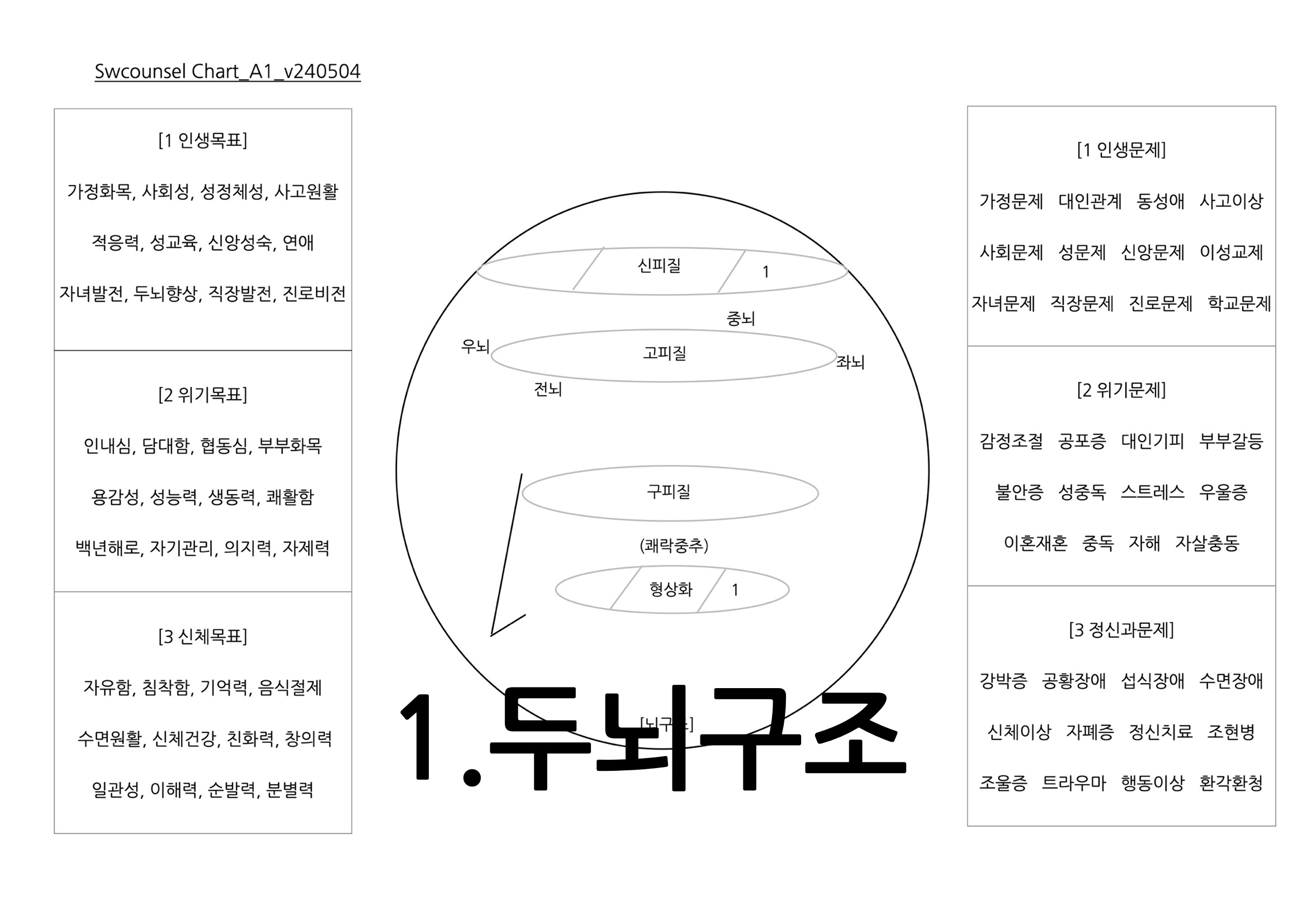[104방법론] S c r i p t u r e O p e n s B l i n d E y e s (영문)
1 Co uns e l Ephe s i a ns
Newcomers to biblical counseling often experience a sharp-edged uncertainty reflected in questions like the following: “Where should I begin? I am keenly aware of my inability and incompetence, but I want to help people. I want to reflect and communicate Jesus Christ! But I know the Bible is vast and deep. The particulars of God’s working can be unclear. At the same time, the problems and burdens people bring are perplexing and overwhelming. And I have my own sins and struggles. My understanding and ability are limited and compromised. I’ll never begin to help other people grow in wisdom if I need to master the entire Bible and solve every variant of the human condition, including my own! Where do I start?” Experienced counselors— unless they’ve become dry and rote—also feel the sharp edge of similar questions, not about how to begin, but about how to continue on. When you step into the light of God and into the darkness of mankind, you step into unfathomables. Who is sufficient for such things? How will you master what exceeds your comprehension and ability? You will not go wrong if you plunge into Paul’s letter to the Ephesians. Master it. Be mastered by it. Work Ephesians into your thinking, your living, your prayers, and your conversation. The Bible is vast and deep, and human life is diverse and perplexing. But in a pinch you could do all counseling from Ephesians. It’s all there: the big picture that organizes a myriad details. And Ephesians is not only “counsel,” but also “counseling.” It talks and walks method as well as content. Paul himself is a changed man. He lives out and teaches wise pastoral strategy. Ephesians aims to teach you how to live. That is a synonym for counseling biblically, for doing face-to-face ministry. 17 This essay is not a “commentary” on Ephesians. It attempts a different genre, being written for people involved in the face-to-face aspects of ministry, as shepherds of individual souls. Ephesians itself was written by a shepherd of souls. Yes, Paul was an exegete and a theologian, but he was first a man in Christ, and then always a pastor, to all of God’s people (in other words, a preacher) and to each one of God’s people (in other words, a counselor). Someone once described Jonathan Edwards this way: “His theology was all application, and his application was all theology.” That’s the sort of theology and application that Ephesians incarnates. It’s also what is attempted here: to write practical theology from Ephesians. Let me begin by addressing a crucial preliminary question. How do we interpret Ephesians? What is it we are dealing with? I have neither space nor wisdom to give a comprehensive hermeneutic philosophy and exegetical methodology as these bear on counseling. But let me make three points to orient us as we seek to think accurately about this book. Ephesians Is Practical Theology Ephesians is not just about practical theology, it is practical theology. The distinction between “biblical truth” and “practical application” is artificial. In the Bible, truth arrives in action. Paul teaches by applying biblical truth to himself and others. Ephesians is not a treatise, manual, or commentary. It is a letter. Ephesians is application, life lived out before our eyes. The very truth of God comes via the author’s life in Christ, and via the contents of his letter. This truth embodies the faith and faithfulness that are its intended results in readers. “Practical theology” and “pastoral practice” speak and act personally: a message, from me, to you. Ephesians is a letter. It is not about various theological or ethical “topics.” It is not a collection of aphorisms or a treatise about God and human beings in general. It is not a story. Paul writes in the first and second person. You hear him talking with you as if he were saying: “God predestined us to adoption. I give thanks for you. You were dead in sins. We have received an inheritance. Pray for me.” Ephesians expresses a three-sided encounter between God, Paul, and his hearers. 1 8 S c r i p t u r e O p e n s B l i n d E y e s Counsel Ephesians Practical theology takes place in the first and second persons: you, I, we. It only talks “about” something or someone when that best serves talking “to” someone. In Ephesians, ministry, life, and relationships are happening, so Paul’s words come packaged as prayer, worship, self-disclosure, and direct address. Let that grab you: Paul’s words come as prayer, worship, selfdisclosure, and direct address. This is very different from most books. It is different—sadly—from most sermons, teachings, and counseling sessions. It is different from the distance and presumed objectivity of most scholarly theological reflection, or the clinical mode of most counseling writing. When Paul discusses the glory of God’s grace in Christ, he audibly exults in that grace (Eph. 1:1–14). When he teaches about the power of God in Christ and your deepest need, he lets you hear how he prays for you (1:15–23). When he gives his doctrines of sin and salvation, he directly addresses you: “You were dead. We were dead. By grace you have been saved. We are his workmanship” (see Eph. 2:1–22). When Paul expounds theology about how all nations are welcome in Christ, he tells his own story and breaks forth into another prayer: “Hear about the stewardship of God’s grace which was given to me for you . . . I bow my knees before the Father that he would grant you . . .” (see Eph. 3:1–21). When Paul goes on to write extensively about ethics, relationships, and the dynamics of change, he speaks directly to you: “I beseech you to walk worthy of your calling . . .” (4:1–6:18). When he signs off, it is with a prayer request, some personal information, and a warm goodbye (6:19–24). Ephesians is practical, relational, and pastoral. Living faith itself happens in the first and second persons. Since faith in Christ is caught as well as taught, Paul pulls out the personal stops to make what he says infectious. Ephesians is practical theology. It is living faith. It is ministry in action. All this is tremendously significant for how you understand and use Ephesians today. By definition, most thoughtful writing about Ephesians has been scholarly. As such, it runs the danger of misrepresenting Ephesians by failing to come back full circle to practical life and ministry. Good scholarship can serve ministry well, if we recognize what the Bible is, and what it intends to accomplish. Failure to recognize this sends scholarship over the cliff into either error or irrelevancy, and renders ministry misguided and impotent. Ephesians, like life and ministry, 1 9 does not operate in the genres of most theological education. It is practical theology and pastoral practice, and aims to produce the same. It is neither exegesis, nor systematic theology, nor redemptive story. Ephesians Is Not Exegetical Theology It is not in the form of a Bible study or commentary. Though Paul quotes, paraphrases, or alludes to many Old Testament passages (and New Testament realities), he steers his background study and understanding toward a different present purpose. The Ten Commandments, Psalms, Isaiah, and Proverbs appear, but they appear in action, in the here and now, spoken and applied in new ways. His message is always old, arising from Bible study, and coherent with other Scripture. But his message is always new, reworked for ministry now. He uses older Scripture. He does not just “exposit,” because he is not governed by exegetical interests. He constructs a message, governed by ministry-to-real-people interests. Likewise, our job is only begun, not done, when we have studied Ephesians in itself. We, too, must be governed by fresh ministry-to-real-people interests, or we will never really understand Ephesians or be able to use it for the well-being of others. Exegesis probes the original audience, author, and message. We must exegete, but we must do more than exegete. We must move beyond the original. Ephesians Is Not Systematic Theology Yes, it is a primary source of answers to questions central to the system of biblical truth. For example, there is no clearer teaching anywhere about God’s high sovereignty: his purpose, power, grace, and glory in Christ are so exalted that he who has ears to hear what the Spirit writes to the churches must become a heart-afire Calvinist. Here, too, you find unique insight into union with Jesus Christ, the nature of the church, the process of sanctification, our social relations, and spiritual warfare. But Paul’s explicit purposes are not systematic. Rather, he is pastoral and personal. His teaching that we are in Christ comes in the course of worshiping, praying, and exhorting. Why? You also must worship, pray, exhort—and listen to Paul—so that you and others would know this Christ dwelling in your hearts through faith, and would know the love of this Christ that surpasses 2 0 S c r i p t u r e O p e n s B l i n d E y e s Counsel Ephesians knowledge. Systematic theology organizes the whole of the Bible with a philosophical logic, but we must do more than catechize people with our doctrinal categories if we are to minister to them. Ephesians Is Not Biblical Theology It is not a recitation of the story of God’s redeeming work throughout history. Yes, the Story is all here: God’s eternal purposes to be carried out in Christ; predestining love; creation by the Maker of all things; the fall into all-absorbing sin and just wrath; deliverance through the Beloved’s blood; the raising up of Christ and of us in Christ; his coronation upon the throne of all power; the present indwelling of the Holy Spirit in both church and heart; the expansion of the promise to include all peoples in promises originally for Jews only; the anticipated day of his return when the kingdom will be revealed in all its glory, perfection, and wrath. But the Story is scattered through Ephesians in snippets. While the pieces are capable of reassembly into a redemptive historical narrative, Paul is up to other purposes. Yes, every story is embedded in this Story. Everyone lives tucked between eternal purpose and eternal destiny, a story within the Story. But, note well, Paul did not write a narrative. He did not write a piece of biblical theology. He does not content himself with storytelling when he intercedes for you, pleads with you, sings high praises, promises, and commands. Biblical theology organizes the whole of the Bible with a historical and narrative logic, but we must do more than tell the Story if we are to minister to people. Ephesians is fair game for the labors of exegetical, systematic, and biblical theology.1 These auxiliary disciplines are crucial for understanding the Bible in and of itself. But never forget, Ephesians is and does practical theology, speaking from the Lord into people’s lives. We only reach Paul’s intended goal when we also do practical theology, speaking the truth in love to grow up together into Christ, our head. You must close the loop. Paul’s walk and fresh message must lead to your own walk and fresh message. We must apply its present message to its present audience to truly understand it. Practical theology is the end in view. Ephesians sings and dances; it is not just a book containing lyrics, score, and choreographic diagrams. It is written to change you and make you an instrument of change in the lives of your brothers and sisters. Yes, bring the tools of Bible study and the- 2 1 ological reflection to bear. But never allow the support disciplines to degenerate into ends in themselves. Explore the practical wisdom that is Ephesians’s chief end, so that you, too, will live and do ministry the way Paul does. Ephesians Is a Door to the Rest of Scrip ture A second key for understanding and using Ephesians well is to see the “hot links” to the rest of Scripture and to see the particular way Paul uses other Scripture. Ephesians communicates a sense of the entirety of Scripture. It is dense with specific citations and allusions and uses other Scripture for present purposes. Scripture bleeds Scripture, and God’s new message is constructed out of God’s former messages. The new message is consistent in general to older messages, but it innovates in the specifics. What is the hermeneutic principle by which Paul appropriates the rest of Scripture? Paul’s method is quite striking, perhaps even disturbing to common views of Bible study. To be sure, Paul is not fanciful or arbitrary. He does not play fast and loose with Scripture, as if anything goes. He does not bend Scripture to his own fancy by prooftexting, by spinning fantastic allegories, by numerology, by word association, or by arbitrary spiritualizing of texts. He never does out-of-control things like taking Numbers 13:33 to mean “the spies in the land suffered low self-esteem because they saw themselves like grasshoppers.” His logic is not the sort that says, “Nehemiah first inspected the damage to the walls of Jerusalem, therefore counselors must first explore the woundedness of those they counsel.” But it is also noteworthy that Paul does not use the rest of Scripture in a grammatico- historical way either. In fact, he never exegetes and expounds the original meaning of the many passages he cites or alludes to. He comes close to proof-texting when he takes an old text in a different direction from its original: e.g., his use of “be angry but do not sin” (Ps. 4:4; Eph. 4:26). He comes close to allegory and spiritualizing when he extends and reconfigures the meaning and application of old texts: e.g., the victorious Lord’s “ascending on high” (Ps. 68:18; Eph. 4:8–11) and a husband’s “leaving and cleaving” (Gen. 2:24; Eph. 5:31f). In every case, Old Testament words and themes become big- 2 2 S c r i p t u r e O p e n s B l i n d E y e s Counsel Ephesians ger than they once were, showing spectacular new dimensions of meaning. Paul is extremely creative! Grammatico-historical interpretation of the originals does not lead to what Paul says and does. We must ponder this carefully. What principles control Paul’s use of older Scripture? A full answer lies well beyond the scope of this chapter, but the kernel of the answer can be stated in two principles. First, Jesus Christ super-fulfills the Old Testament. Second, there is a general thematic coherence rather than either contradiction or exact replication between new use and original meaning. Paul is creative, but not fantastic, contradictory, or disconnected. Christ creates both the difference and the coherence; the new purposes of ministry express both the difference and the coherence. Imagine that in 1905 God had promised your great-grandparents that someday he would give their descendants a Model T Ford, a radio communications system using Morse code, and a biplane. When he decided to deliver in 2003, he gave you a Dodge Viper, a satellite-linked cell phone, and an F–117A Stealth Fighter. The promise was fulfilled . . . in ways beyond imagination. You travel, do business, and fight in ways that show a thematic coherence with 1905—it is still recognizable as transportation, communication, and war—but the details have changed. Similarly, the prophecies, songs, commandments, and stories of the Old Testament become supercharged with the power and glory of the Holy Spirit by whom Jesus Christ indwells his people. They are tailored to the needs of a different people living in a different time, facing recognizable but different problems. In opening doors to the entirety of Scripture, Ephesians “alters” previous Scripture. When Christ becomes the sacrificial offering (Eph. 5:2) and we become God’s temple (2:21), we are invited to read Leviticus and 1 Kings differently—not with fanciful allegories, but as metaphors in blood and stone of a Christological dimension. When anger threatens the unity of Christ’s people in the midst of their sanctification process (4:26), we are invited to read Psalm 4 differently, with entirely new implications. There are far-reaching differences between Paul’s citations and the cited originals. It is as though the original were a solitary star seen by the naked eye. But seeing both Christ and contemporary need, Paul gazes at that star through a powerful telescope, and now he beholds the Andromeda Galaxy: billions upon billions of stars, a disk of radiant beauty 100,000 light years across, a 2 3 vast spectacle of glory previously unimagined. The scope of application and the depth of implication multiply as Paul rereads the Old Testament and Gospels through the glory of the reigning Christ, and through his task of writing a practical charter for the church. Ephesians opens doors into other parts of the Bible, but it reworks the things it opens before us. Consider a half-dozen examples. 1. When Paul says, “Be filled with the Spirit, speaking to one another with psalms, hymns, and spiritual songs, singing and making melody with your heart to the Lord, always giving thanks for all things in the name of our Lord Jesus Christ to God the Father” (Eph. 5:18–20), he opens a direct link to all 150 psalms. But Paul’s words also make all 150 psalms mean something more than they first meant. In the first place, David’s meditations, cries, shouts, and songs are recharged in the light of the Lord Jesus Christ and God the Father. In the second place, the psalms are here presented not as merely objects of Bible memory or liturgical reci tation. Rather, “psalms” provide a paradigm for a living, speaking faith in Christ. To be “filled with the Spirit” is to have your language alive to God, both your daily conversations with others and the inward conversation within your heart. Your cognitive streamof- consciousness and your social interactions are meant to be psalm-like and psalm-informed. That includes the ability to quote a psalm in a timely and relevant way, but it is something much more. Paul calls you to a lifestyle of joyous dependence on Christ, to live in faith like the Psalms. A videotape of your outward speech and inward thoughts would look like a continuously updated and personalized psalm. The realities of a living relationship with Christ infuse the way you process the specifics of your daily life. You speak and think new-minted re-creations and applications of Scripture into the exigencies of the moment, updated at every point by Jesus Christ. Examples of the Spirit filling people for psalm-like and psalm-informed words appear in Elizabeth, Mary, and Zechariah (Luke 1); in the teachings and prayers of Jesus (Luke 6; 11); in the speeches of Peter (Acts 2; 4); in the 2 4 S c r i p t u r e O p e n s B l i n d E y e s Counsel Ephesians praying of believers (Acts 4); in the praises, prayers, and exhortations of Paul’s entire letter to the Ephesians; in the times you speak the Word of God with boldness, clarity, and faith; in the times you bless the Lord with all that is within you. Paul has pointed you to Psalms with a radical new application: go and live like the psalms do, seeing the Lord Jesus Christ. 2. Not only does Paul point to the Psalter as a whole, but he specifically quotes three psalms. Each case gives the Old Testament a fresh application and a Christ-enriched focus. When God “puts all things in subjection under his feet” (Ps. 8:6; Eph. 1:22), a passage originally about the creation glory of mankind comes to picture the redemption glory of the unique Son of Man, in whom we also are raised and enthroned as the new humanity. Psalm 8 is recognizable, and not contradicted. But radio-transmitted Morse code has become a satellitelinked cell phone. In Ephesians 4:8–11 Paul amplifies, and even alters Psalm 68:18: “When he ascended on high, he led captive a host of captives, and he gave gifts to men.” The original proclaimed the Lord’s victorious ascendancy at Mount Sinai, in an undefined future when all nations would bow. That future has now been defined, in Christ, and everything changes. A psalm about “ascending” is now taken to be pregnant with the prior “descending” of the Lord (incarnation, suffering, death). The place ascended is not Sinai, but the throne of the universe. The victory parade is reworked to tell of the Lord’s “giving” gifted people to lead his church, actually inverting the original that had the Lord “receiving” gifts in homage. When Paul writes, “Be angry, and yet do not sin” (Ps. 4:4; Eph. 4:26), he again shifts the direction of application in addressing a very different context. The original appeared as part of an extended meditation on stilling your heart into peace and trust, so that you would not sin when you are upset at the wrongdoing of God’s enemies. The fresh restatement develops the necessity of dealing quickly with anger, primarily in the context of the remnant sins that can irritate and provoke those in Christ. It develops the devilish dimension, how unresolved anger plays into the divisive agenda of the accuser of 2 5 the brethren. It sets our dealing with anger in the larger context of “learning Christ” (Eph. 4:20), one piece of the transformation of our lives. Psalm 4:4 has been adapted to a larger vision. The quotation sparkles with new meanings, not contradictions. 3. Ephesians opens a door into Proverbs. When Paul discusses walking in wisdom instead of folly (Eph. 5:15–18a), he creates a live connection to the whole book of Proverbs (and the wider wisdom tradition) that details this theme. He caps things off with a direct quote from the Greek translation of Proverbs 23:31, itself a loose paraphrase and amplification of the original Hebrew. This quotation does not function as an exegesis of Solomon’s vivid discussion of drunkenness in Proverbs 23. It serves as a “for instance” of foolish pleasure that contrasts with the solid pleasures of being filled with the Holy Spirit and knowing the Lord. Several clauses later, the “fear of Christ” (5:21) makes a Christ-enriched allusion to the first principle of all the wisdom literature, the fear of the Lord. 4. Paul’s radical Christifying of the Old Testament gets pushed to the extreme when he cites the call to “leave and cleave” (Gen. 2:24; Eph. 5:31–33). The principles of marriage—and Paul is still teaching on marriage—get pressed to serve radical Christ-and-church conclusions. Actual marriage becomes a secondary application of a text explicitly about marriage! The love of Christ for his wife and the submission of the church to her husband are a wellspring of truth about marriage. Genesis 2:24 remains thoroughly true in itself, but relatively narrow in meaning compared to what Paul now sees: the Andromeda Galaxy. Such a metaphorical use—we could call it “allegorizing” if that word retained any positive connotations—is not arbitrary, however. It is thematically consistent with the exegesis of Genesis 2. 5. Even the Ten Commandments are reworked and enriched in Christ and by present purposes. For example, Paul directly cites the fifth commandment (Ex. 20:12; Eph. 6:2–3), calling children to be subject to parents. Here he comes closest to replicating the original text, but, still, in at least three ways this fresh application is more than simple citation. First, he does 2 6 S c r i p t u r e O p e n s B l i n d E y e s Counsel Ephesians not lead with the Scripture citation, but with his own Christloaded words—“Children, obey your parents in the Lord.” The Bible passage is then brought forward as a supporting text, not the primary point. Second, he editorializes in the middle of the quotation, inserting his comment about “the first commandment with a promise,” before finishing off the quote. Third, though the words are identical, “live long on the earth” in Ephesians means something decidedly different than “live long in the land” in Exodus. Israel has become all nations; the Lord has been revealed as Jesus Christ; the promise of real estate has been swallowed up in the promise of Christ.2 6. The source of one quotation in Ephesians remains a mystery: “For this reason it says, ‘Awake, sleeper, and arise from the dead, and Christ will shine on you’ ” (5:14). Previously, when Paul wrote, “Therefore, it says . . .” (4:8), he meant, “The Bible says,” and anyone could go look up Psalm 68:18. But here we do not know the “it” that says what follows. It is not the Bible, at least not directly. The best guess is that Paul cited the words of a well-known, first-century Christian hymn, rather as if he had quoted from “Amazing Grace” or “When Peace, Like a River.” That analogy serves us well. Such hymns speak truth that is quotable in ministry: new, Christified psalms. Just as John Newton and Horatio Spafford had meditated on the Word of God, and that Word mapped onto their personal stories (a fact that both hymns vividly reflect), so Ephesians 5:14 was biblical even before it became Bible. One can easily imagine a brother or sister who had received a wake-up call from God out of the dark torpors of sinfulness, and who now lived with a keen, urgent sense of the light of Christ. The language arises very naturally out of a conflation of Isaiah 26:19, 51:17, 52:1, and 60:1, but Isaiah’s language has been Christified and personalized to a somewhat different purpose. Isaiah never quite said what some firstcentury believer said in applying Isaiah’s words, which Paul then quoted for all time. So a contemporary paraphrase and adaptation of the Old Testament, reworked in the light of 2 7 Christ, became part of the Scriptures with which we now work and live. Does Paul’s way of using Scripture make you nervous? It will, if you expect him to be doing exegetical theology, not practical theology. Should his way of using Scripture unsettle us, who stake our faith and practice on the authority, sufficiency, and clarity of God’s selfrevelation? Not at all. Paul’s use of other Scripture does not contradict the original sense—biplane and Stealth Fighter remain analogous— though he never seeks to replicate the original sense. Exegetical theology has been respected, though pastoral usage flexibly adapts in order to make new points for new listeners in a new time. Paul’s modus operandi is actually quite familiar to biblical theologians and systematic theologians. They seek to answer our questions, just like practical theology does. Good biblical theology is comfortable with looking backwards at earlier things and seeing richer meanings: types, foreshadowings, prophetic words, pregnant events that only in retrospect reveal super-fulfillment as Christ enriches and alters previous revelation. Similarly, Paul’s teachings are consistent with how good systematic theology proceeds to use the Bible. It uses the Bible to answer new questions of doctrine and ethics. And systematics often takes biblical words and defines them with either a broader or a narrower semantic field than they have in the Bible itself. Done faithfully, this does not pervert Scripture or exegesis, but it answers questions that need answering in a true and biblical manner. Scripture itself uses language this same, normal, flexible way: “faith” has a different scope in Hebrews than in Romans; “justification” has a different slant in James than in Galatians. Paul’s pastoral practice—like biblical theology, systematic theology, and wise living— manages to remain coherent with the content of specific texts, and yet it adapts texts to new purposes. Paul addresses new questions, and crafts a fresh message to contemporary hearers in a way that looks surprisingly freewheeling at first glance. What a remarkable, provocative, and unusual door Ephesians opens into the rest of the Bible! The light of the Lord Jesus Christ and current ministry needs lead Paul to rework Scripture and put Scripture to work. What does all this mean? We see Paul opening doors into the rest of the Bible, yet we see him doing something quite different and more 2 8 S c r i p t u r e O p e n s B l i n d E y e s Counsel Ephesians complicated than just quoting or exegeting Bible texts. He is a man transformed in Christ. He is doing ministry. He is living psalmically and proverbially. His faith speaks afresh to God and man in the exigencies of his particular life situation as apostle to the nations; he lives new-minted wisdom in that situation. Here is the million dollar question: May we do something like what Paul did, even with Ephesians? Or was he exercising an apostolic prerogative when he Christified, paraphrased, recontextualized, and reworked Scripture? I will clarify what I mean and do not mean in the next paragraphs, but let me first state the answer bluntly. Not only may you do something like what Paul does, you must do so—and you already do so, every day. Life and ministry that are faithful to God’s Word and relevant to the varied conditions of humankind use Scripture in creative and personalizing ways. Honest, relevant, extemporaneous prayers pull together snippets and paraphrases of Scripture, interweaving the Bible with the current needs of people. Sermons quote and exegete Scripture, but they also cite Scripture out of context, play with language in fresh ways, tell new stories, and apply in creative ways. Heart to heart conversations quote or allude to passages and phrases from the Bible, all of it colored, reworked and personalized by the details of our lives. Good hymns work off of one particular passage or a collage of passages, elaborating them, pouring in Christ, weaving in human experience, developing analogous metaphors: “Christ the Lord is Risen Today,” “How Firm a Foundation,” “Amazing Grace,” “What a Friend We have in Jesus.” Make no mistake, you are not writing or receiving the inscripturated Word of God. Your praying, preaching, counseling, singing, and living the Word embody a derivative authority only. You are not a mouthpiece of Scriptural revelation any more than John Newton or Horatio Spafford was. But if you live your life and do your job faithfully, you are praying the Word, preaching the Word, counseling the Word, singing the Word, and living the Word. In a way analogous to Paul, though not identical in authority, you will use Scripture with that multitude of adaptations, personalizations, paraphrases, and story-tellings that are part of the normal Christian life. We must do something like what Paul did, as well as stay faithful and subordinate to what Paul said. Faithful does not mean rote. Faithful does not 2 9 mean you keep your nose in a book, even The Book, because The Book models something different. I am not arguing for relativism. I am not arguing that revelation is ongoing and progressive. I am not arguing that parts of the Bible are passé and discardable. I am not arguing for “every man does what is right in his own eyes” when it comes to Bible interpretation. I am not arguing for departing from or modifying Scripture. I am not arguing that all meaning is in the eye of the beholder, as in postmodern, deconstructionist interpretation. I am not arguing for adding to the Bible, supplanting the Bible, or going beyond the Bible. I am not arguing for subjectivism. The Bible is absolute, eternal, infallible, authoritative, sufficient, perspicuous, unchanging, reliable truth, the Word of the living God. But I am arguing that good living, preaching, praying, counseling, conversing, teaching, meditating, and singing all do something with Scripture. Only in this way are we truly faithful to Scripture. “Wisdom” and “living faith” necessarily embody creative adaptations, applications, and personalizations. The Bible models how truth is used, and such usage involves a flexibility and adaptability that may seem shocking, dangerous, and unfamiliar. But the alternatives to such an insightful and creative pastoral practice would have seemed shocking, dangerous, and unfamiliar to the apostle Paul. He was not wooden, “biblici s t i c ,” or superstitious about Scripture. I will say again, you must do something like what Paul did in the way he used Scripture. You already do something like it every time you pray, ponder, preach, or counsel wisely. Becoming more conscious of what you do and should do will help you live and minister better. Ephesians Is Hard to Understand Sometimes Peter once commented that the letters of “our beloved brother Paul” contain “some things hard to understand, which the untaught and unstable distort, as they also do the rest of the Scriptures, to their own destruction” (2 Peter 3:15–16). If even a fellow apostle could find Paul hard to grasp, how much more will we find ourselves perplexed on occasion! Did Peter have Ephesians specifically in mind when he said Paul could be perplexing? We don’t know, but the shoe fits. And 3 0 S c r i p t u r e O p e n s B l i n d E y e s Counsel Ephesians our ignorance and instability can lead us to distort the obvious as well as the difficult. We may not be those who utterly twist Paul’s words to our destruction. But beware, the defining characteristics of evildoers are always the remnant tendencies and temptations of those who believe. In our ignorance, we tend to blunder into foolish interpretations. In our instability, we tend to get sidetracked. The net effect is always a headstrong, desire-driven life that evades the central thrust of God’s message. Instead, let us be thoroughly and consistently taught to know the Lord, to build stable lives of growing faith and growing love. We do well to ask God, “Give us more wisdom. Enable us to listen well.” Our ability to understand is greatly affected by the clarity or confusion of our faith and by the obedience or disobedience of our practice. Here are three ways Ephesians can be hard to understand. Incomprehensible without the Spirit First, Paul himself acknowledges that Ephesians discusses matters that are incomprehensible unless the Holy Spirit opens our minds and hearts. God must give us a “spirit of wisdom and of revelation . . . that the eyes of our heart may be enlightened” to understand the very things printed on the page in front of us! God must enable us to “know the love of Christ that surpasses knowledge,” or we remain in a stupor. This difficulty does not arise because Ephesians is particularly obscure. It is not full of dark sayings, odd imagery, and allusions to long-lost cultures. The book of Judges has places that are obscure to us, but Ephesians tends to be beyond us. Its meaning eludes us for reasons akin to what the old hymn says, “Immortal, invisible, God only wise, in light inaccessible, hid from our eyes . . . O help us to see ’tis only the splendor of light hideth Thee.” Ephesians expresses the divine glory. We get bedazzled and blinded by the available light. The easily understandable things in Ephesians are islands of light in a sea of light brighter than the sun, not islands of light in a sea of darkness. By definition, we need God’s help to understand Ephesians. Divisive Debate vs. Unity Second, a great deal of theological debate and ecclesiasticalinterpersonal conflict has swirled around Ephesians, the book of unity. Such debate can have two immediate negative effects. Some- 3 1 times our attitudes become discolored by controversy itself. Sometimes our opinions are marked by particular errors. In either case (and often both happen together), we will have a hard time hearing what Ephesians really says. Controversy, even for good causes, tends to create tunnel vision and to breed ungodly attitudes. We make one mountain into the whole mountain range, or one molehill into a mountain. What we see, or think we see, consumes our minds. We lose sight of the mountain range, the context in which both mountain and molehill can be seen and weighed for what they are. We may be exactly right about our particular issue, but narrowed truth becomes unbalanced truth. It loses the ability to listen and be corrected. Narrowed truth becomes half-truth, and broadly false. Narrowed truth loses love and the redemptive modus operandi. As it does so, it becomes reactive error. It becomes increasingly distorted. It becomes a vehicle for interpersonal conflict and self-righteousness. But Ephesians speaks a truth that calls us to live “with all humility and gentleness, with patience, forbearing one another in love . . . speaking the truth in love.” That does not leave much room for the sour and suspicious attitudes that fester in controversy. Controversy tends to make us forget Christ, causing us to become angry, messianic, despairing, or fearful. Ephesians presses us about such attitudes and the words they produce. Whether our words are spoken or written, they must never be rotten or harmful. They must always be grace-filled and constructive. They must always be tailor-made to time, place, person, and circumstance. Particular false views will also markedly affect our ability to hear Ephesians for ourselves and use it well for others. For example, every professing Christian believes both in God’s grace and in human responsibility. But when it comes to determining whether God’s grace or human decision has priority in conversion, controversy often reigns. Nevertheless, every point of view must reckon with Ephesians. I find Ephesians 1:3–2:10 incontrovertible regarding the priority of grace. Our standing in Jesus Christ comes about because “God chose us in Christ before the foundation of the world” to fulfill “his purpose, who works all things after the counsel of his will” (Eph. 1:4, 11). Yes, at every point, we choose: we believe or stray, we repent or harden, we obey or rebel, we love or hate. But, the “glory of his grace” is so glorious, and the “deadness in trespasses and sins” is so dead, that any no- 3 2 S c r i p t u r e O p e n s B l i n d E y e s Counsel Ephesians tion of dead men initiating or sustaining life-giving faith toward God without being made alive by God seems absurd to me. In addition, God’s hand in my own conversion was so strikingly invasive and intervening—so Ephesianic—that I have never doubted the utter sovereignty of grace to rescue the utterly perverted. But many Christians, of sincere faith and of more godly character than I, some of whom I know as friends and brothers, teach a more sanguine view of human ability and a less exalted view of God’s grace. We disagree with each other. I think their view shallow regarding both God and man, and liable to disconcert faith’s maturing and enduring joy. They think my view dreary about God and man, and liable to demotivate people. One of us is wrong about the logic of grace and responsibility. Wherever the error lies, it will certainly hinder our understanding of Paul, and will have a significant effect on how we minister to others. Controversies of many other sorts also fight out battles in the sentences of Ephesians: church government, the nature of worship, charismatic gifts, male-female roles, the mode of spiritual warfare, the permissibility of anger, and so forth. Being wrong will make Ephesians hard to understand, and will harm both the church and the individual. 3 Our Heart’s Agenda Third, the biggest hindrance to understanding arises within our own hearts. Both the intrinsic difficulty of Ephesians and specific theological controversies intersect with us! Our ability to understand Ephesians correlates with our ability to live Ephesians. Clearer faith and obedience directly enables greater understanding. Greater understanding directly fuels more energetic obedience and faith. Ephesians makes clear that two kinds of hearts operate. One basic nature is dark, hard, ignorant, self-serving, and blind: “you were formerly darkness.” The other basic nature is light, tender, knowing, loving, and seeing: “now you are light in the Lord; walk as children of light” (Eph. 5:8). Paul warns against the former. He prays for and exhorts us unto the latter. And so we must warn, pray, and exhort. When you read Ephesians, believe. Ask for help. Walk it out. Encourage others. Your understanding and effectiveness will grow. Let me make a final comment about the difficulties of under- 3 3 standing Ephesians and then writing about it. As an author, I am not satisfied with what I have written here. Paul wrote only a short letter. Did it take him even one day to dictate it to his secretary? From the rough syntax of 3:1–2, it looks like he nailed it on the first take. Paul’s mere 2,400 words would occupy only four pages in this book. Yet the ink spilled here does not come close to doing justice to the glory of God’s grace. This outline on Ephesians is rather like a park ranger’s commentary at the foot of a majestic mountain. The summit stands far, far above us still, in air too rare and light too bright. I hope that you will profit from what you read, that you will think, live, and practice for the better. And where you find missteps or gaps, take up the burden, so that God’s people may together attain to the unity of the faith and the knowledge of the Son of God. 3 4 S c r i p t u r e O p e n s B l i n d E y e s
| ||||||||||||||||||||||||















